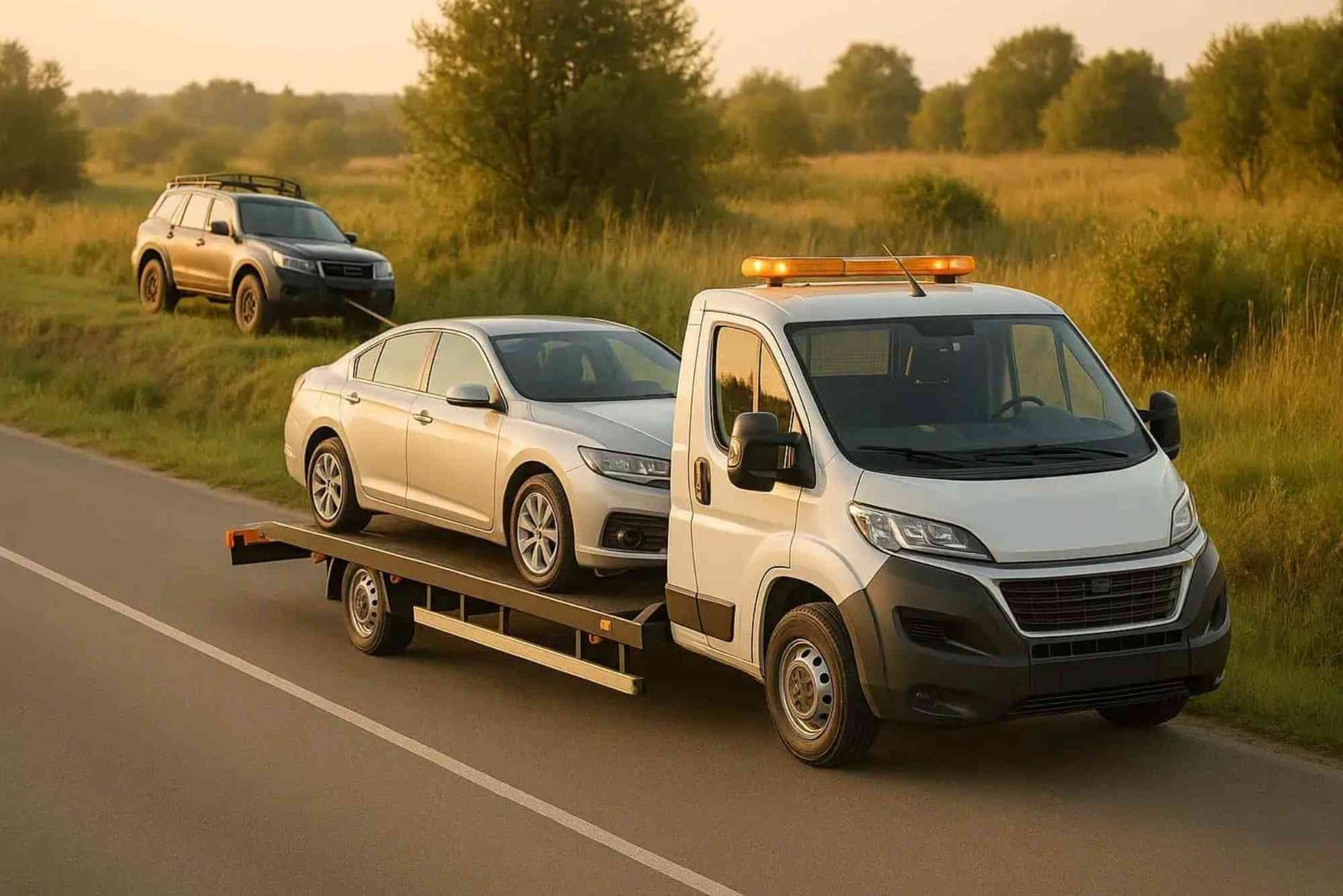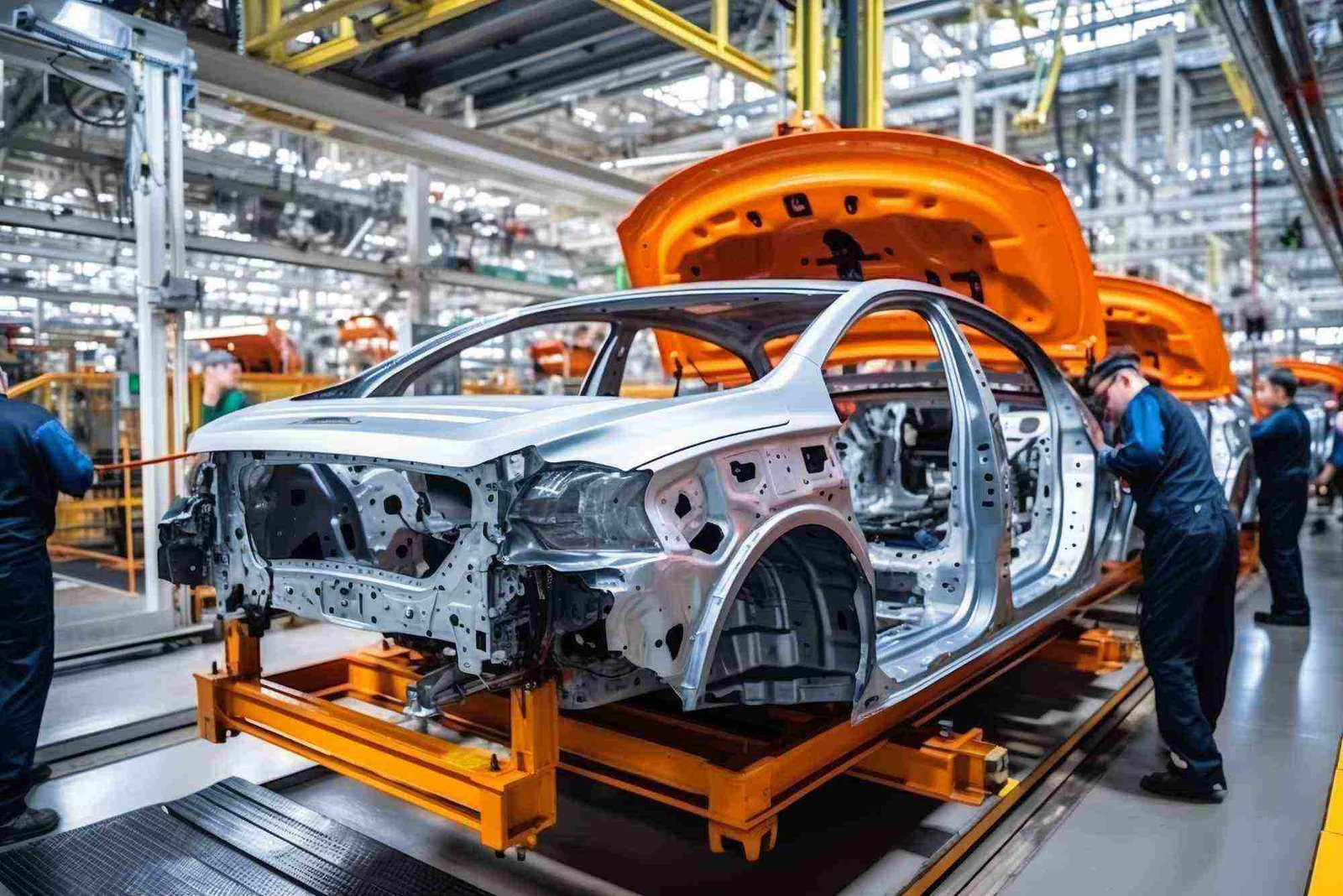Introduction
When your vehicle breaks down on the road, the first thing that comes to mind is getting help — but should you call for towing or recovery? Many drivers use these terms interchangeably, yet they refer to two distinct services. Understanding the best what is the difference between recovery and towing for beginners can help you make the right decision, save money, and ensure your car is handled safely.
This comprehensive guide will walk you through everything you need to know about these two essential services — what they mean, when to use them, and how they differ in process, cost, and purpose.
Understanding the Basics of Vehicle Assistance
Before diving into the details, it’s important to grasp the core idea. Both towing and recovery involve moving vehicles, but the context and complexity differ significantly.
Towing typically means transporting a car that’s still in a stable condition but unable to move on its own — maybe it has a flat tire, dead battery, or engine failure. Recovery, however, deals with vehicles that are stuck, damaged, or overturned, often due to accidents or off-road mishaps.
Learning these distinctions is part of understanding automobile basics, which every driver should know. You can explore more on this topic in the automobile basics section for in-depth car care and safety information.
What Is Towing?
Towing refers to the process of pulling or transporting a non-operational vehicle from one location to another. A tow truck hooks up your car and takes it to a repair shop, garage, or safe area.
Towing is ideal when your vehicle is:
-
Mechanically broken down but still in a stable condition.
-
Stuck due to a minor issue, such as a flat tire.
-
Parked illegally or blocking traffic.
In most cases, towing trucks use a flatbed or a hook-and-chain mechanism to lift and secure the vehicle for transportation. The key point is that the car remains intact and accessible.
What Is Vehicle Recovery?
Vehicle recovery is a more complex service that involves retrieving vehicles from difficult or dangerous situations. If your car has rolled into a ditch, been in an accident, or is stuck in mud or snow, a recovery team is required.
Recovery experts use specialized equipment like winches, cranes, and heavy-duty tow trucks. The goal is not just to move the vehicle but to extract it safely without causing additional damage.
Recovery situations often occur after accidents, extreme weather events, or off-road driving incidents. It requires trained professionals who can assess the situation and apply the right method to bring your vehicle back to safety.
The Key Differences Between Recovery and Towing
While both services aim to help stranded drivers, several important differences set them apart. Understanding these distinctions is crucial for making the right call when your car breaks down.
Condition of the Vehicle
Towing is used when your car is intact but not drivable. Recovery is for vehicles that are stuck, damaged, or off-road.
For instance, if your car simply refuses to start, a towing service will suffice. But if your car has fallen into a ditch or been involved in a collision, recovery experts are needed to lift and stabilize it first.
Equipment Used
Towing involves basic tools like hooks, chains, and flatbeds. Recovery requires advanced machinery like winches, cranes, and hydraulic systems. These tools help handle complex scenarios safely.
Level of Skill Required
A tow truck driver needs general mechanical knowledge, but recovery operators must have specialized training. They handle riskier situations that require precision, safety awareness, and coordination.
Cost and Complexity
Towing is usually straightforward and less expensive, as it involves simple transportation. Recovery tends to cost more due to the complexity of the situation and the advanced tools required.
Safety and Risk
Towing a car from a roadside is generally low-risk. Recovery operations, however, can be hazardous, especially if vehicles are overturned or in unsafe locations. Professionals follow strict safety protocols to prevent further damage or injury.
When Should You Choose Towing?
You should opt for towing if:
-
Your car won’t start but is parked safely.
-
You need to move your vehicle to a repair shop.
-
Your tire is flat or you have a dead battery.
In these scenarios, a tow truck can quickly load and transport your car with minimal hassle. Always ensure your towing company is licensed and insured to avoid potential damages.
When Should You Choose Recovery?
Choose recovery when your car is:
-
Involved in an accident.
-
Stuck in mud, sand, or snow.
-
Off-road, in a ditch, or overturned.
Recovery specialists assess the terrain, use the right gear, and ensure your vehicle is extracted carefully. It’s not just about moving the car but rescuing it from danger.
Step-by-Step Process: Towing vs Recovery
To truly understand the best what is the difference between recovery and towing for beginners, it helps to see how each process unfolds.
The Towing Process
-
Inspection – The driver checks your car’s condition and determines the safest towing method.
-
Hooking Up – The vehicle is attached using a flatbed or towing hook.
-
Transport – The car is moved to the designated location.
-
Drop-Off – It’s safely unloaded at the repair shop or your chosen spot.
The Recovery Process
-
Assessment – Recovery experts examine the site, terrain, and damage.
-
Stabilization – They secure the vehicle to prevent movement or rollover.
-
Extraction – Using winches or cranes, the vehicle is safely lifted or pulled out.
-
Transport – If needed, the vehicle is towed to a garage for repairs.
This comparison shows that towing focuses on transportation, while recovery emphasizes rescue and safety.
Common Mistakes Drivers Make
Many beginners misunderstand which service they need. Some call a tow truck for a situation that requires recovery, leading to delays or extra costs. Others try DIY recovery using ropes or small winches, risking further damage or injury.
Always identify the situation correctly — if the vehicle is stuck, damaged, or unsafe to access, recovery is the right option.
Importance of Professional Services
Hiring professionals ensures safety and minimizes damage. Certified experts follow official maintenance guidance from authorities like the National Highway Traffic Safety Administration (NHTSA) to perform recovery and towing safely.
Their expertise and specialized tools make all the difference, especially in critical situations. A professional approach also helps avoid legal and insurance issues that may arise if you attempt an unapproved recovery.
Cost Comparison: Towing vs Recovery
The cost difference depends on distance, location, and situation.
-
Towing costs generally range between $50 and $150 for short distances.
-
Recovery costs can range from $150 to $500 or more due to the complexity of the operation and the equipment required.
Before calling a service, describe your situation accurately. It helps the company send the right type of truck and give you a fair estimate.
Safety Tips for Drivers
-
Always park your vehicle safely if possible before calling for help.
-
Turn on hazard lights to alert other drivers.
-
Stay inside your car if it’s unsafe to exit (e.g., on a busy highway).
-
Use emergency triangles or flares if available.
Knowing these steps can prevent accidents while waiting for assistance.
Expert Insight: Which One Do You Need?
If your car simply breaks down — it’s a towing job. If your car is stuck, damaged, or off-road — it’s a recovery job. This is the simplest way to remember the best what is the difference between recovery and towing for beginners.
If you’re unsure, it’s always best to describe your situation clearly to the roadside assistance operator. They’ll determine the right service based on your description.
For a detailed breakdown, you can refer to this guide to what is the difference between recovery and towing for further insights.
FAQs
Can a tow truck do recovery work?
Some tow trucks are equipped for basic recovery, but severe situations require specialized recovery trucks.
Is vehicle recovery covered by insurance?
In many cases, yes. Comprehensive auto insurance often covers recovery after an accident. Check your policy for details.
What should I do if my car is stuck off-road?
Avoid spinning the tires or trying to pull it yourself. Call a recovery service immediately to prevent further damage.
How long does recovery take compared to towing?
Towing usually takes less than an hour. Recovery time varies depending on the situation’s complexity and location.
Do I need to be present during towing or recovery?
It’s recommended to be present for authorization and documentation, but some services allow remote coordination.
Understanding the best what is the difference between recovery and towing for beginners empowers you to make smart decisions during a vehicle breakdown. Towing handles simple transport issues, while recovery deals with complex and risky situations.
When in doubt, always call professionals who follow official maintenance guidance and prioritize safety. Knowing the difference can save you time, money, and stress in emergencies.
If you want to dive deeper into this topic, visit the guide to what is the difference between recovery and towing to enhance your knowledge and stay prepared for any roadside challenge.
Whether you’re a new driver or an experienced one, knowing when to call for towing or recovery could make all the difference. Stay informed, stay safe, and always trust professionals for your vehicle’s needs.




